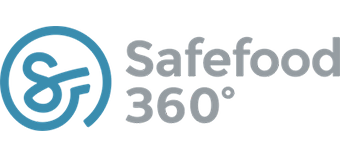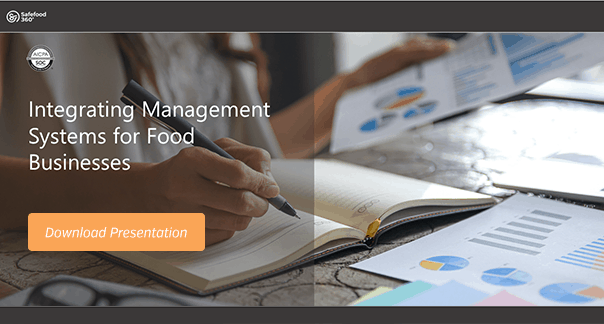Webinar: Integrating Management Systems for Food Businesses
ISO Annex L requires individual management systems to maintain a High Level Structure (HLS).
In the food industry there now exists a growing trend among many food businesses which recognize that food safety management, while an absolute priority, may no longer be the only management standard that a food business should strive to be adherent to.
These modern businesses now seek to create a seamless compliance management framework that unifies disparate compliance Management Systems.
This HLS applies to all systems of management applicable to a modern food business including:
- Food Safety Management
- Quality Management
- Environmental Management
- Health & Safety Management
- Sustainability Management
- Information Security Management
Recently, Safefood 360° CEO George Howlett sat down with the International Food Safety and Quality (IFSQN.com) as part of their Food Safety Friday’s series to explore practical approaches to creating a singular system of management that is leaner and more efficient than multiple separate systems.
This hour-long discussion emphasized how consolidating systems into a singular framework can often result in opportunities that improve productivity and internal process efficiencies when manging systems.
Introducing a commonality of systems allows businesses to approach this challenge in a sustainable way that can bring value through their entire business.
These benefits can apply to all businesses regardless of their size of operations as they include the streamlining of duplicate processes and improving transparency with integrated audits and documentation to improve co-operation across the business group.
Beginning with understanding the drivers for compliance within an organization and their need to exist within the framework of legislation, certification, inspection, and regulatory audits , this webinar explores methodologies and approaches a business can take to meet increasing burdens of compliance.
These extra burdens also need to be managed, controlled, and improved as businesses must operate under sustainable and often environmentally ethical practices.
Demonstrating these in an objective system of management that can be assessed fairly can give added security and value to stakeholders and customers alike.
Understand what practical steps businesses can take to implement and demonstrate a robust system of compliance beyond food safety that meets these increasing demands and drive efficiencies.






Leave a Reply
Want to join the discussion?Feel free to contribute!